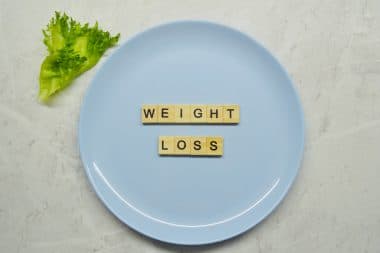One of the main reasons why so many people have become overweight in the West is due to their eating too many calories. The consumption of more calories than are burned each day means that the body stores the extra calories as fat. The modern diet certainly allows a person to eat well beyond the calories they need to maintain their weight.

As our working habits have changed, so have our calorie requirements. The average person now needs around 2000-2500 calories a day to keep them at their present weight. The best way to work out exactly how much you should be eating to maintain your present waistline is by using a bmr, which is the basal metabolic rate — the amount of calories you burn every day, even if you sleep for 24 hours. People who weigh more actually have a larger BMR than those who look slimmer, and a reduction in their calorie intake, even if the calories still total more than that eaten by a thinner person, will help them lose weight. This is the method used in most dietician”s and doctors clinics.
The important factor to remember when considering how many calories you need to eat each day is that is does not matter so much what you eat, quite so much as how much you eat. Of course, anyone who eats a diet solely of fat will not get slim, no matter what some diet books tell you. However, neither is one cupcake going to sink your entire weight-loss plan. Sensible dieting — that is, a diet in which all of the food groups are eaten in appropriate quantities — lasts much longer than starvation diets and fad diets. Going on to a very low-calorie diet for long periods of time will cause your metabolism to slow down — the opposite of what you want. If you find that you reach a weight, and cannot loose any more, then you will need to amend your diet.
On a diet, you will find that your BMR will fall, so that a calorie intake that once helped you to lose weight is now keeping you from losing any more. Rather than just do more exercise (which has a limit on how much more you can do), you need to alter again the amount of calories you are consuming. A diet with limited calories will work for a short period, but the body will adjust to the new diet, and stop losing weight. A sensible diet, worked out using BMR index, and a gradual reduction in food intake, is the best way of managing weight loss. You can click this to calculate your BMR








Reply